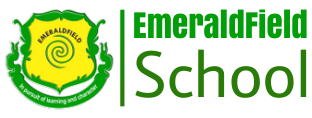Curriculum
Our curriculum is a blend of the British and Nigeria curricular with a touch of the American curriculum
Our Learning Approach
The basic learning tools Of Reading, Writing, Listening, Speaking, Literature, Drama, Social Study, Math, Science, Health, Physical Education, Music and Visual Arts are imparted in a manner that allows for one - on - one interaction and differentiated instructions.
- In imparting the standard curriculum, teachers, as much as possible, give meaning to the topic at hand, and show its relevance and relationship with other subjects thereby ensuring an integrated curriculum, that makes connections across the curriculum.
- Infused into the standard curriculum is the teaching of Character Education.
- An enhanced literacy program that encourages listening and speaking skills ensures that every child is able to read, write and speak confidently.
- Incorporation of investigation processes and technology through the use of research and information technology.
- Regular continuous assessment with emphasis on comprehension of subject matter and behavioral expectations as opposed to emphasis on terminal results.
- Critical and creative thinking through small group discussion and brainstorming sessions.
- The ability to transfer classroom learning to other settings enabling the child to develop positive attitudes for continued successful learning throughout the elementary grades and beyond. Therefore, learning techniques such as role-play, drama, home and community engagement are applied, empirical evidence:“The brain learns best in real-life immersion-style multi-path learning. Fragmented piecemeal presenting can forever kill the joy and love of learning.”
… Jensen, 1996.- ‘Every child matters and every child has a voice,’ will encourage self-expression and build the child’s self-esteem and confidence.
- Activities are both teacher-initiated and directed and child-initiated and directed.
- The old model of teacher-centered classroom is ‘played down’ to enable a more democratic classroom where teachers and students hold class meetings to build unity, establish norms and solve problems.
- Discipline & Classroom Management concentrate on problem-solving rather than rewards & punishment.
- Mentoring and peer or cross-age tutoring through the forming of **‘Study Buddies,’ **where younger and older students get together to work one-on-one on academic tasks and other activities.
- Achieving academic goals through community engagement. E.g. Excursions, workshops by guest speakers, school competitions, and rendering relevant services to the community.
- Cross cultural appreciation to bring ‘Unity in Diversity.’
- We emphasize partnership with families in the child’s development. In addition, teachers must have knowledge of children and how they learn.
